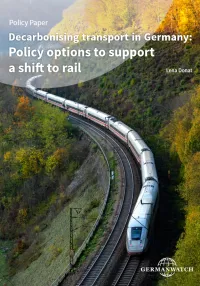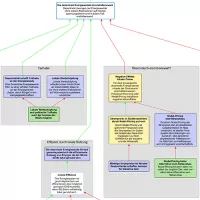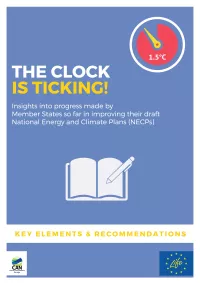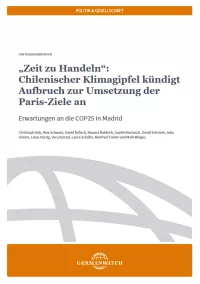
Aktuelles zum Thema
The Climate Change Performance Index (CCPI) presented today at the climate summit in Madrid reflects opposing trends in global climate action: Australia, Saudi Arabia and especially the USA give cause for great concern with their low to very low performance in emissions and renewable energy development as well as climate policy. With these three governments massively influenced by the coal and oil lobby, there are hardly any signs of serious climate policy in sight. On the other hand, global coal consumption is falling and the boom in renewable energy continues. In 31 of the 57 high emitting countries assessed, collectively responsible for 90 percent of emissions, falling emission trends are recorded.
By the end of the year, EU countries will have to submit their final National Energy and Climate Plans to present how they will contribute to the EU’s 2030 climate and energy targets.
Under the motto "Time to act", the 25th Conference of the Parties (COP25) to the United Nations Framework Convention on Climate Change (UNFCCC) will take place from 2 to 13 December 2019 in Madrid, Spain, under Chile's presidency. After all, it is finally time for action in the logic of the UN negotiations. Following the decisions of the Paris Climate Agreement in 2015 and its implementation rules last year, nothing stands in the way of decisive action.









